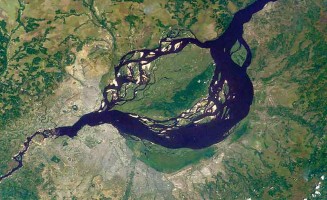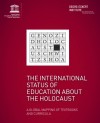Building Peace Programmes
Establishing a culture of peace and sustainable development are at the heart of UNESCO’s mandate. Training and research in sustainable development are among the priorities, as well as human rights education, skills for peaceful relations, good governance, Holocaust remembrance, the prevention of conflict and peace building.
UNESCO, since 1945, has promoted the right to quality education and the advancement of science and its applications to develop knowledge and capacity for economic and social progress, the basis of peace and sustainable development.
International cooperation is promoted through programmes on the management of transboundary sites such as World Heritage sites, biosphere reserves and geoparks, and of transboundary water resources, as well as Water for Peace programmes such as From Potential Conflict to Cooperation Potential (PCCP). UNESCO is leading the United Nations International Year of Water Cooperation 2013, to promote deeper cooperation to tackle the rising demand for water access, allocation and services.
Several international projects established under the auspices of UNESCO aim to promote solidarity and peace in the Middle East through scientific cooperation. These include one of the most ambitious research facilities in the Middle East, known as SESAME (Synchrotron-light for Experimental Science and Applications in the Middle East), and the Israeli-Palestinian Science Organization (IPSO).
Within the context of its intergovernmental mandate and universal membership, UNESCO has focused its work in science on issues of global concern requiring multinational collaboration such as in the fields of freshwater resource management, ocean health, climate change, renewable energy, natural disaster reduction, biodiversity loss, and capacity building in science, technology and innovation.
Knowledge of rights and freedoms is considered a fundamental tool to guarantee respect for the rights of all. UNESCO’s work in human rights education is guided by the World Programme for Human Rights Education.
UNESCO is concerned by the rise of racism, xenophobia and intolerance, and considers that education is essential to strengthening the foundations of tolerance, reducing discrimination and violence. Launched on 18 January 2012, the UNESCO-USA-Brazil project “Teaching Respect for All” aims to design a curricular framework to fight racism and promote tolerance, which countries can adapt to their respective contexts and needs.
UNESCO recognizes that teaching the lessons of the Holocaust is fundamental to establishing respect for human rights, basic freedoms and the values of tolerance and mutual respect. UN Member States are encouraged to develop educational programmes to transmit the memory of the Holocaust to future generations so as to prevent genocide from occurring again. UNESCO promotes these learning materials and provides a platform for institutions, teachers, students and interested parties to access resources on Education for Holocaust Remembrance.








